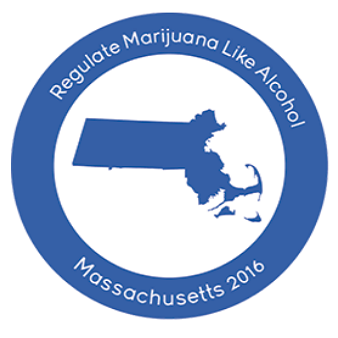9 Problems With the Marijuana Rules Proposed by Massachusetts Legislators
Anticipating approval of a legalization initiative, a legislative committee recommends heavier taxes and stricter regulations.

In an op-ed piece published yesterday, Massachusetts Gov. Charlie Baker, Attorney General Maura Healy, and Boston Mayor Martin Walsh urged voters to reject a marijuana legalization measure that is expected to appear on the state ballot in November. Meanwhile, state legislators released a 118-page report that assumes marijuana will be legalized and makes recommendations about how it should be regulated. Their answer: more strictly than envisioned by the ballot initiative, which is known as the Regulation and Taxation of Marijuana Act (RTMA). Here are some of the ways in which the Special Senate Committee on Marijuana wants to make restrictions on the production, distribution, and consumption of cannabis more onerous:
1. Home cultivation. The RTMA allows adults 21 or older to have up to six plants and 12 seedlings at home. The committee wants to "prohibit home growing" or at least "impose a temporary moratorium." If home cultivation were eventually allowed, growers would have to register with the state to make the enforcement of limits easier.
2. Possession. The RTMA allows possession of up to an ounce in public and up to 10 ounces at home, plus whatever is produced by homegrown plants. The report calls for a one-ounce limit in all settings, meaning people would be allowed to buy no more than one ounce minus whatever they had at home.
3. Taxes. The RTMA calls for a 3.75 percent excise tax and allows local governments to impose special sales taxes of up to 2 percent. The committee recommends "an excise tax of between 5-15%," plus "a marijuana-specific sales tax of 10-20%" and local taxes up to 5 percent. Elsewhere in the report, the authors say "the black market is likely to persist." They seem determined to make that prediction come true.
4. Local bans. The RTMA requires local voters to approve bans on marijuana businesses in particular cities or counties. The committee thinks a vote by local legislators should be enough.
5. Stoned driving. The RTMA does not change current state law concerning driving under the influence of marijuana, which does not include any threshold based on THC blood levels. The committee, even while conceding "there is no well-accepted standard for determining driver impairment from marijuana intoxication," recommends "establishing a legal limit for THC blood concentration that would support at least a permissible inference standard in court." That is the standard used in Colorado, where a jury is permitted (but not required) to find a defendant guilty of DUI based on nothing more than a blood test showing a THC level above the arbitrary cutoff of five nanograms per milliliter.
6. Marijuana edibles. The RTMA does not specify any restrictions on the types of edibles that merchants may sell. The report says legislators should "prohibit the manufacture and sale of marijuana products that are particularly appealing to youth and may be mistakenly consumed by children, such as candy bars or gummy bears." Such a ban could cover a wide range of candies, snacks, baked goods, and beverages that have proven highly popular with adults in Colorado.
7. Marijuana concentrates. While the RTMA envisions the sale of concentrates, the committee says legislators should ban home production and "consider setting an upper limit on potency that would apply to all marijuana products," which would effectively ban the commercial production of concentrates as well.
8. Advertising. The RTMA calls for "reasonable restrictions on signs, marketing, displays and advertising with respect to marijuana, marijuana products and marijuana accessories, including prohibiting marketing or advertising designed to appeal to children." Here is what the committee considers reasonable: "strict limits on marijuana marketing, advertising, and promotion in order to limit commercialization and youth appeal"; a ban on television, radio, print, Internet, billboard, or other ads "that may be viewed by youth"; and a ban on "advertising that may be seen out of state" (except for Internet ads). The legislators implicitly concede that the regulations they want would be blatantly unconstitutional if marijuana were not still banned by the Controlled Substances Act. They argue that federal prohibition means they don't have to worry about the First Amendment's "free speech protections." That may or may not be true, but they seem to be forgetting about the state constitution, which also guarantees freedom of speech.
9. Banking. The report notes the barriers to banking created by the federal marijuana ban but nevertheless says legislators should "require evidence of a banking relationship as part of the licensure process for a marijuana-related business."
From the perspective of consumers and entrepreneurs, all of these purported improvements are worse than the rules preferred by the ballot initiative's backers. On the brighter side, the report's authors wisely recommend that legislators neither require nor prohibit vertical integration, and they do not rule out the cannabis cafés that would be allowed by the RTMA, saying only that alcohol sales should not be permitted there.


Show Comments (16)